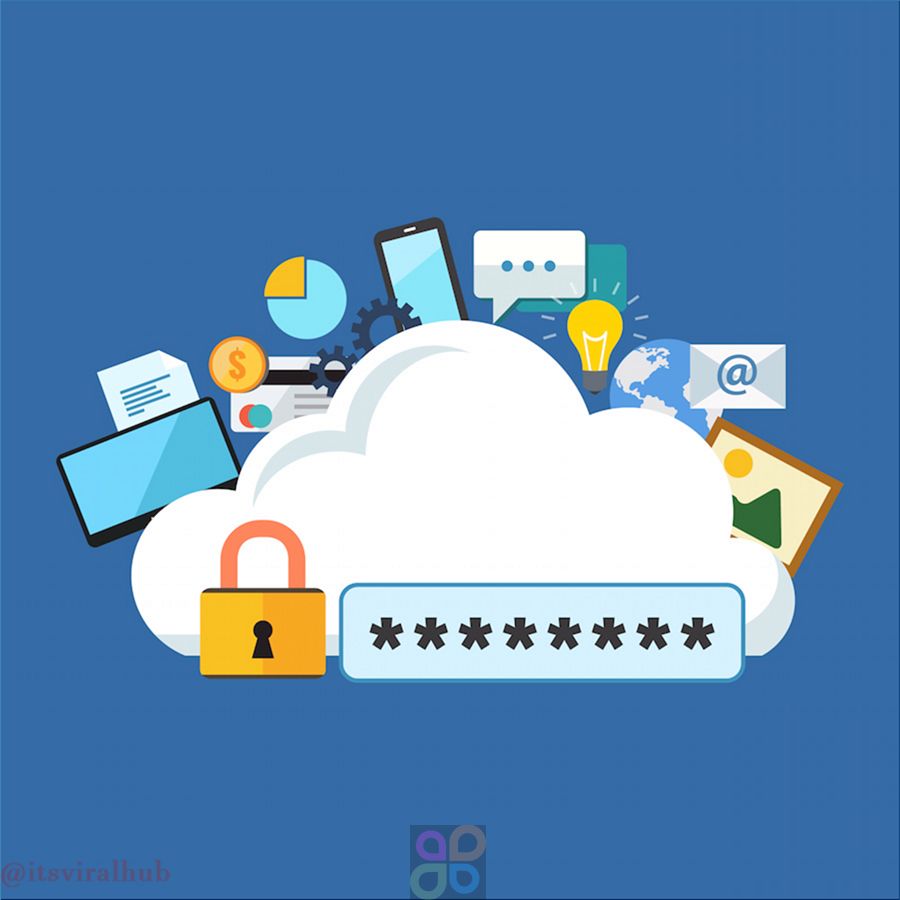In today’s digital age, websites have become a critical component of businesses and individuals alike. Unfortunately, with the increased importance of websites, comes the increased risk of cyber attacks from hackers. These attacks can cause serious harm to both the website owner and its users, leading to data breaches, loss of revenue, and reputation damage. As such, it is essential to take measures to protect website from hackers. In this article, we will explore some tips on how to do just that.
Your website may not seem like it would be worth a hacker’s attention, but this is not always the case. The majority of website security breaches seek to utilize your server as an email relay for spam or to set up a temporary web server, usually to provide files of an unlawful nature, rather than stealing your data or messing with your website layout(opens in new tab). Utilizing your servers as part of a botnet or to mine for bitcoins are two additional highly popular ways to take use of hacked equipment. You could even experience ransomware.
8 Tips to Protect Website from Hackers
Automated programs that search the internet for known vulnerabilities in website security are frequently used to hack into websites. Here are our top nine suggestions for being secure online, both for you and for your website.

Hacking is consistently performed via robotized content written to scour the Internet trying to abuse known site security issues in programming. Here are our best 8 tips to help guard you and your website on the web.
01. Keep software up to date
One of the most straightforward ways to protect your website from hackers is to ensure that all software, including content management systems (CMS) and plugins, is up to date. Hackers often exploit vulnerabilities in outdated software to gain unauthorized access to websites. Therefore, it is essential to regularly check for updates and install them as soon as possible.
02. Watch out for SQL injection
2. Beware about SQL injection
Attackers can access or alter your database with SQL injection by using a web form field or URL parameter. It is simple to accidentally introduce malicious code into your query when using normal Transact SQL, which might be used to modify tables, get information, and destroy data. Using parameterized queries is the best approach to avoid this; most web languages include this capability, and it’s simple to use.
Consider the following:
"SELECT * FROM table WHERE column = '" + parameter + "';"If an attacker changed the URL parameter to pass in ‘ or ‘1’=’1 this will cause the query to look like this:
"SELECT * FROM table WHERE column = '' OR '1'='1';"Since ‘1’ is equal to ‘1’ this will allow the attacker to add an additional query to the end of the SQL statement which will also be executed.
You could fix this query by explicitly parameterizing it. For example, if you’re using MySQLi in PHP this should become:
$stmt = $pdo->prepare('SELECT * FROM table WHERE column = :value');
$stmt->execute(array('value' => $parameter));03. HTTPS Protocol:
HTTPS is a convention used to provide security over the Internet. HTTPS assures clients that they’re conversing with the server they expect and that no one else can capture or change the substance they’re finding in travel.
In the event that you have anything that your clients may need private, it’s exceedingly prudent to utilize just HTTPS to convey it. That obviously implies Visa and login pages (and the URLs they submit to) however normally a greater amount of your site as well. A login frame will frequently set a treat for instance, which is sent with each other demand to your site that a signed in client makes, and is utilized to validate those solicitations. An aggressor taking this would have the capacity to splendidly impersonate a client and assume control over their login session. To crush this sort of assault, you quite often need to utilize HTTPS for your whole site.
That is no longer as dubious or costly as it used to be, however. You should encrypt give thoroughly free and robotized testaments, which you’ll have to enable HTTPS, and there are existing group devices accessible for an extensive variety of normal stages and structures to consequently set this up for you.
Outstandingly, Google has declared that they will help you up in the search rankings in the event that you utilize HTTPS, giving this an SEO advantage as well. There’s a stick to go with that carrot, however: Beginning in January 2017, Google Chrome and different programs are wanting to put greater and greater notices on each site that doesn’t do this. Shaky HTTP is headed out and now’s an ideal opportunity to redesign.
04. Website Security Applications or plugins:
Installing security plugins can add an extra layer of protection to your website. Security plugins can help you identify potential vulnerabilities and protect against common types of attacks, such as brute force attacks and SQL injection attacks. Some popular security plugins include Wordfence, Sucuri Security, and iThemes Security.
Some free instruments that merit taking a gander at:
- Netsparker (Free people group release and trial form accessible). Useful for testing SQL infusion and XSS
- OpenVAS. Cases to be the most developed open-source security scanner. Useful for testing known vulnerabilities, as of now look like over 25,000. Be that as it may, it can be hard to set up and requires an OpenVAS server to be introduced which just keeps running on *nix. OpenVAS is a fork of a Nessus before it turned into a shut-source business item.
- SecurityHeaders.io (free online check). A device to rapidly report which security headers said above, (for example, CSP and HSTS) an area has empowered and effectively arranged.
- Xenotix XSS Exploit Framework An instrument from OWASP (Open Web Application Security Project) that incorporates a gigantic choice of XSS assault illustrations, which you can race to rapidly affirm whether your webpage’s information sources are helpless in Chrome, Firefox, and IE.
The outcomes from robotized tests can be dismal, as they exhibit an abundance of potential issues. The imperative thing is to concentrate on the basic issues first. Each issue discussed ordinarily accompanies a decent clarification of the potential helplessness. You will most likely locate that a portion of the medium/low issues isn’t a worry for your site.
Read Also: Open-Source Phishing Application-Gophish
On the off chance that you wish to make things a stride advance at that point, there are some further advances you can take to physically endeavor to trade off your site by adjusting POST/GET values. A troubleshooting intermediary can help you here as it enables you to block the estimations of an HTTP ask-for between your program and the server. A well-known freeware application called Fiddler is a decent beginning stage.
So what would it be a good idea for you to attempt to change to meet the demand? On the off chance that you have pages that should just be unmistakable to a signed-in client, then I would take a stab at changing URL parameters, for example, client id, or treat esteem trying to see points of interest of another client. Another territory worth testing shapes, changing the POST esteems to endeavor to submit code to perform XSS or to transfer server-side content.
Ideally, these tips will help guard your site and data. Thankfully, most CMSes have a great deal of inbuilt site security highlights. However, it is still a smart idea to know about the most well-known security misuses so you can guarantee you are secured.
05. Case Sensitive Passwords

Another simple but effective way to protect your website is to use strong passwords. Weak passwords can be easily guessed or cracked, giving hackers access to your website’s backend. It is advisable to use a combination of uppercase and lowercase letters, numbers, and special characters when creating passwords. Additionally, consider using a password manager to generate and store strong passwords securely.
In the event of somebody hacking in and taking your passwords, utilizing hashed passwords could help harm constraints, as unscrambling them isn’t conceivable. All the best somebody can do is a lexicon assault or a savage power assault, basically speculating on each mix until the point that it finds a match. When utilizing salted passwords, the way toward splitting a substantial number of passwords is considerably slower as each figure must be hashed independently for each salt and secret key, which is computationally exceptionally costly.
6. Implement Two-Factor Authentication (2FA)
Two-factor authentication (2FA) is an additional security measure that requires users to provide two forms of identification to access a website. This can include a password and a one-time code sent to the user’s phone or email. 2FA can significantly reduce the risk of unauthorized access to your website, even if a hacker manages to obtain a user’s login credentials.
7. Backup Your Website Regularly
Regularly backing up your website can help you quickly recover from a cyber attack. If your website is hacked or goes down for any reason, having a recent backup can help you restore your site to its previous state. It is recommended to back up your website at least once a week or more frequently if you make frequent updates.
8. Use HTTPS
Using HTTPS (HyperText Transfer Protocol Secure) is an essential step in securing your website. HTTPS encrypts the data sent between your website and its users, making it more difficult for hackers to intercept and steal sensitive information. Additionally, search engines like Google give preference to secure websites, meaning using HTTPS can also improve your website’s visibility and search engine ranking.
What is Ethical hacking?
Ethical hacking, also known as “white hat” hacking, is the practice of using hacking techniques and tools to identify vulnerabilities in computer systems, networks, and applications with the goal of improving their security. Unlike malicious hackers, ethical hackers have permission to conduct their activities and are bound by a strict code of ethics that ensures they operate within legal and ethical boundaries.
Ethical hacking is becoming increasingly important as cyber threats continue to evolve and pose significant risks to individuals, businesses, and governments worldwide. By identifying and remedying security flaws, ethical hackers help prevent data breaches, theft, and other cybercrimes that could cause significant damage.
In this context, ethical hacking plays a critical role in ensuring the safety and security of digital assets and has become an essential component of any comprehensive cybersecurity strategy.
Conclusion
In conclusion, protecting your website from hackers should be a top priority for all website owners. By keeping software up to date, using strong passwords, installing security plugins, implementing two-factor authentication, backing up your website regularly, and using HTTPS, you can significantly reduce the risk of cyber-attacks and keep your website and users safe.
So these were some of the tips to protect website from hackers.



